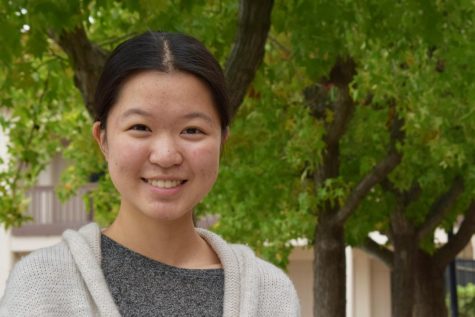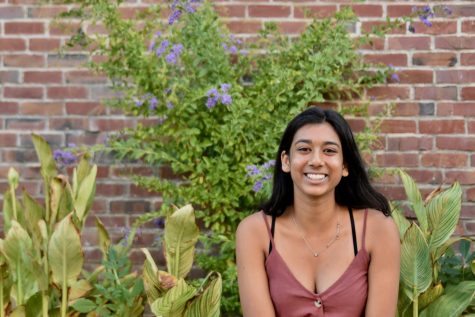Paranoid about the paranormal
MVHS students and faculty explain their beliefs on and encounters with paranormal activity
November 18, 2018
During the night, a door creaking open or the wind howling through the trees might seem more ominous than normal, depending on one’s belief in the supernatural. English teacher Kate Evard, for instance, has strongly believed in the existence of ghosts and spirits since she was a young child.
“I’ve always been interested in [paranormal activity] all throughout my life,” Evard said. “Unfortunately, people started dying in my life when I was really young, so I’ve had a lot of opportunities for what I consider to be experiences of those people coming back into my space and it’s just something that I can feel, so I firmly believe that it’s a thing.”
As a little kid, she recalls participating in séances, where they would try to conjure the dead. They would also play with Ouija boards, which are “spirit boards” used to communicate with the dead. Whenever she went to the library, she gravitated toward books about paranormal activity. Like Evard, junior Glenn Duan also believes in ghosts but for reasons of fear rather than interest.
“My belief is that if I say that I don’t believe in ghosts, karma is going to [take revenge on me] and I’m going to regret it,” Duan said. “So I’m going to leave it as yes, I do believe in ghosts.”
While Duan’s opinion on ghosts stems from his fear of karma, he does think that other people’s beliefs vary depending on where they live and their living conditions. While people may have different spiritual beliefs, he thinks that physical living conditions can play a part in whether or not someone believes in and even experiences paranormal activity.
“I think it depends [on] where you grew up,” Duan said. “Like if you grew up in, say, a not as rich neighborhood, you might kind of have experience that leans you toward, maybe, the belief. And if you had kind of a rich and relaxed life you might not have had those life experiences that would drive one to believe in paranormal activities.”
In the context of Silicon Valley, which Evard considers quite a “scientific” area, there is much less speculation about the paranormal. Junior Glen Chen, for example, does not believe paranormal activity exists at all, as he hasn’t found any solid evidence to prove it and he hasn’t been affected by any paranormal activity.
“I feel like [ghost stories] are just fake or even if those people actually believe they’re real, they probably just imagined them or [the events] they’re usually [occur] at night or something, so [people] could see something that they thought was something else,” Chen said.
This rational viewpoint on paranormal activity makes both Evard and Evard’s dad, who shares similar paranormal interests with his daughter, unique in their beliefs and experiences.
“I’ve been here [in Silicon Valley] the whole time [and] so has my 92-year-old dad,” Evard said. “It’s just what I think. And it’s not based on any kind of ignorance or anything, my dad has an MBA and a Bachelor’s in Engineering from Stanford so he’s no dummy.”
In terms of Evard’s story, Chen doesn’t believe she’s lying, although he does emphasize that this is an anecdote by one person, which doesn’t automatically lead to the conclusion that ghosts are real. He also admits that he used to be wary of superstitions as a child. He once had a book with a bunch of myths, one of which scared him when he was 6 years old.
“One of the [myths] was like, if you think about becoming a werewolf enough, then you actually become one,” Chen said. “And I like believed that when I was 6 years old and I was really scared. But it didn’t happen.”

















